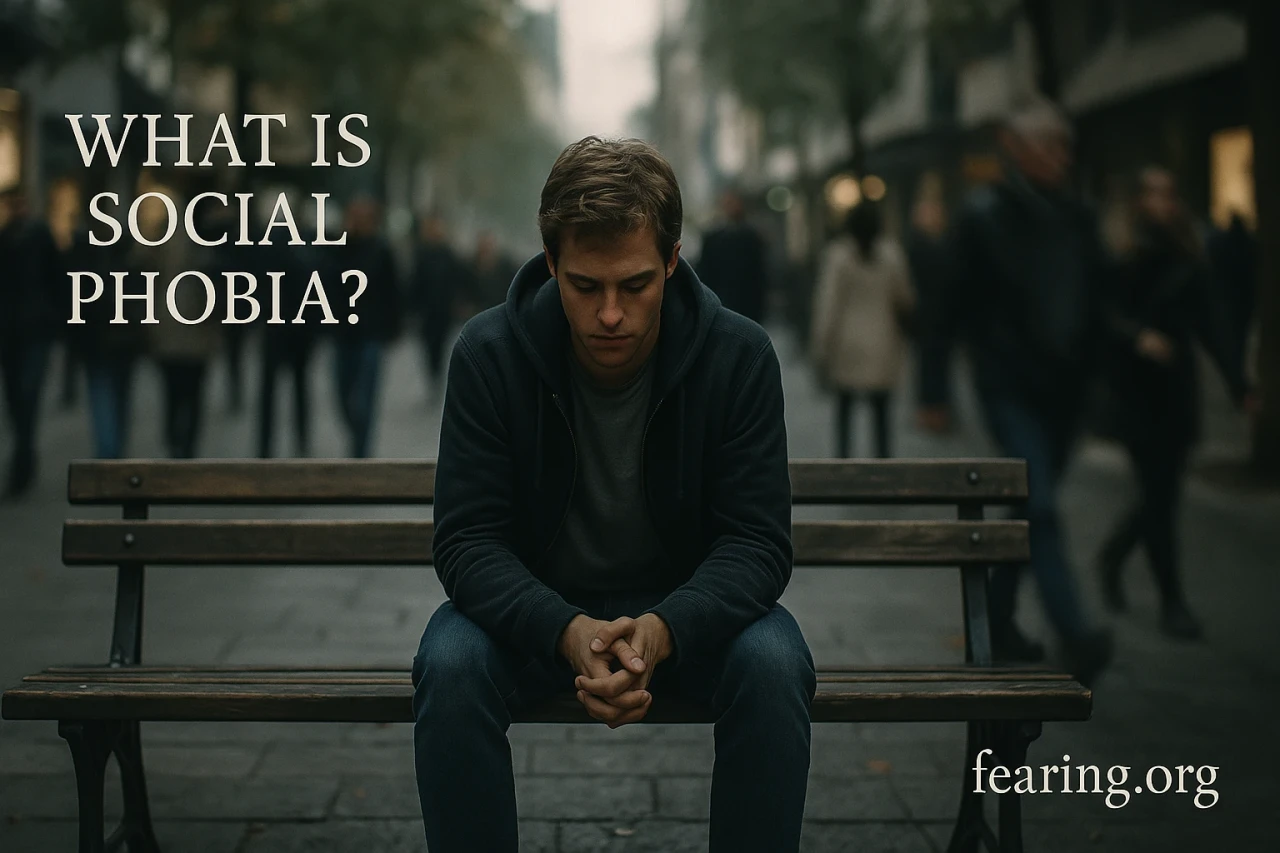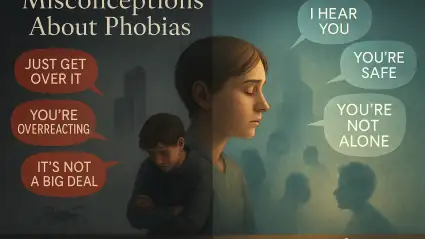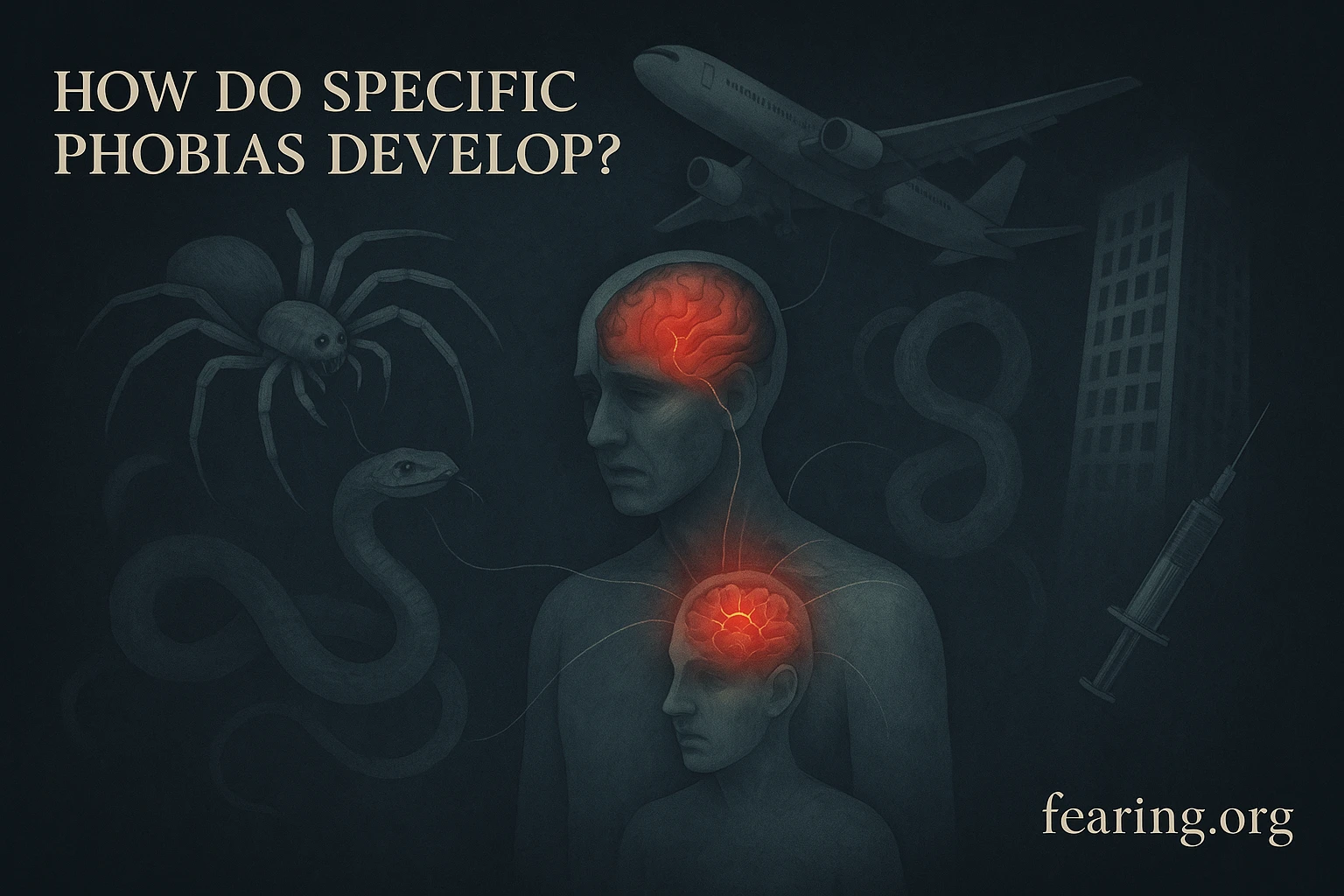Social phobia, also known as social anxiety disorder (SAD), is one of the most common yet misunderstood mental health conditions in the world. Affecting over 15 million adults in the U.S. alone, it’s a deeply isolating disorder that extends far beyond simple shyness. For many, it’s not just fear of public speaking or being judged—it’s a constant, overwhelming anxiety that can interfere with work, school, relationships, and everyday activities.
"It's not that I don't want to connect—it's that I fear the cost of connection." — Anonymous
In this in-depth guide, we’ll explore what social phobia is, how it develops, how it manifests, and most importantly—how it can be managed and overcome.
What Is Social Phobia and How Is It Different from Shyness?
Social phobia is an anxiety disorder marked by a persistent, intense fear of being watched, evaluated, or humiliated by others. Unlike shyness—which is a personality trait—social phobia is a clinical condition that causes significant distress and functional impairment.
Key differences:
Shyness is occasional and manageable
Social phobia is persistent, irrational, and debilitating
People with SAD often fear:
Speaking in public
Eating or drinking in front of others
Making phone calls
Attending social events or meetings
Being the center of attention
Even everyday tasks like walking into a room or saying hello can trigger anxiety.
What Causes Social Phobia?
The development of social phobia is typically multi-factorial:
1. Genetics and Heredity
A family history of anxiety disorders can increase the likelihood of developing SAD. Research suggests a genetic predisposition plays a role.
2. Brain Function and Structure
Neuroimaging studies show that individuals with social phobia often have hyperactivity in the amygdala, the brain region that processes fear.
3. Negative Childhood Experiences
Bullying, criticism, or parental overcontrol during formative years can create lasting social fears.
4. Learned Behavior
Children who observe anxious social behavior in parents or peers may internalize and replicate it.
5. Cultural and Environmental Factors
Highly judgmental or performance-oriented environments (e.g., strict schools, toxic workplaces) can exacerbate social fear.
What Are the Symptoms of Social Phobia?
Social anxiety symptoms are both psychological and physical:
Psychological symptoms:
Excessive worry before social events
Avoidance of social settings
Negative self-evaluation
Intrusive thoughts after interactions
Physical symptoms:
Rapid heartbeat
Sweating
Blushing
Trembling
Dry mouth
Nausea
These symptoms can escalate into panic attacks in high-stress situations.
How Is Social Phobia Diagnosed?
Diagnosis is usually done by a licensed mental health professional through:
Structured interviews
Diagnostic criteria in DSM-5
Screening tools like the Social Phobia Inventory (SPIN) or Liebowitz Social Anxiety Scale (LSAS)
A diagnosis is confirmed when fear is excessive, persistent (lasting 6+ months), and interferes with daily functioning.
Can Social Phobia Be Overcome?
Yes. With the right approach, treatment, and support, social anxiety can be managed and significantly reduced—sometimes even eliminated.
Let’s look at the most effective methods proven by clinical research.
What Are the Best Treatments for Social Phobia?
1. Cognitive Behavioral Therapy (CBT)
CBT is considered the gold standard for social anxiety treatment. It focuses on:
Challenging negative thought patterns
Reframing self-perception
Gradual exposure to feared situations
Building real-world coping strategies
CBT can be done individually or in group settings, both of which have strong evidence for efficacy.
2. Exposure Therapy
A form of behavioral therapy where patients are slowly and safely exposed to feared scenarios:
Starting with low-stress events (e.g., saying hello)
Progressing to more difficult ones (e.g., giving a presentation)
3. Acceptance and Commitment Therapy (ACT)
ACT focuses on accepting anxious feelings rather than fighting them and taking values-based actions despite fear.
4. Medication
Doctors may prescribe medications to help manage symptoms:
SSRIs (e.g., sertraline, paroxetine)
SNRIs (e.g., venlafaxine)
Beta blockers for performance-related anxiety (e.g., public speaking)
Medication is typically used in conjunction with therapy.
5. Mindfulness-Based Interventions
Techniques like meditation and body scanning can help increase present-moment awareness and reduce anticipatory anxiety.
"Recovery isn’t confidence without fear—it’s action in spite of it."
What Lifestyle Changes Help Manage Social Phobia?
Regular physical activity
Limiting caffeine and alcohol
Structured sleep schedule
Practicing assertiveness and communication skills
Joining support groups (in-person or online)
Journaling anxious thoughts and patterns
Daily rituals can significantly reduce overall anxiety levels.
What Should You Do If You Think You Have Social Phobia?
Don’t self-diagnose alone. Talk to a licensed professional.
Track your symptoms and how they affect your life.
Explore treatment options—therapy is the first line.
Build a support network, even if it starts online.
Celebrate small wins—attending a meeting, making a call, saying no.
Every step is progress.
Can Social Phobia Return After Treatment?
Relapse is possible, especially under stress, but it doesn’t mean failure. Long-term success involves:
Periodic booster therapy sessions
Maintenance strategies like journaling and mindfulness
Recognizing early warning signs
Anxiety is a lifelong tendency for many, but the tools to manage it get sharper over time.
How Can You Support a Friend with Social Phobia?
Don’t pressure or shame them into social events
Offer gentle encouragement
Be patient with cancellations or withdrawal
Celebrate their social successes
Ask what they need rather than assume
Empathy—not advice—is the best medicine.
"Sometimes, just being there is enough to help someone feel less alone in a crowded room."
Final Thoughts
Social phobia is real, painful, and treatable. It’s not weakness. It’s not a personality flaw. It’s an anxiety disorder that millions silently endure—but also one that thousands recover from every year.
If you or someone you love is struggling with social phobia, know this: help is available, healing is possible, and even small steps forward are steps toward a freer, fuller life.
“Social phobia may silence your voice—but it can’t erase your worth.”
















